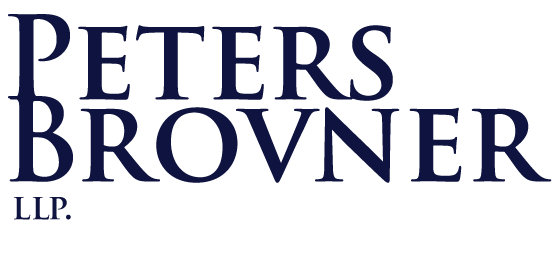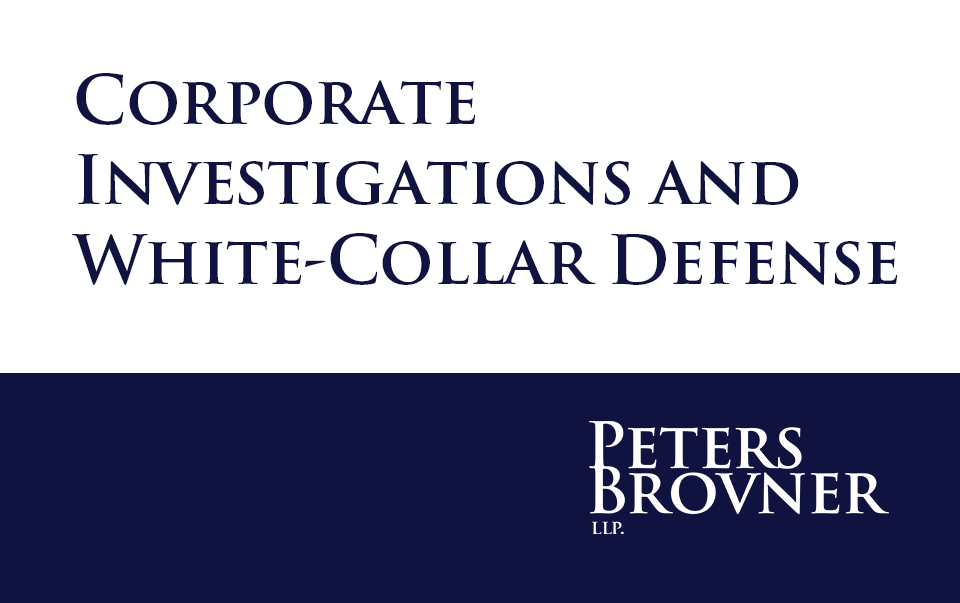White Collar Investigations
Companies and nonprofits often need internal investigations when their employees have engaged in misconduct. When employees commit white collar crimes, this affects both the employee (who may be subject to potential termination and prosecution) and the entity that employs that person.
The way in which companies, nonprofits and their respective boards of directors investigate this misconduct can affect not only the entity’s reputation, but also, in some cases, the entity’s legal exposure. Without a proper investigation, it is impossible to determine exactly what occurred, what if any reporting obligations exist and what compliance procedures will be needed going forward.
Below are several issues that organizations should consider when determining whether to conduct an internal investigation when employee misconduct has occurred or even when such misconduct is suspected.
New York White Collar Investigation Attorneys
When conducting an internal investigation, it is important to have attorneys who are well versed in the intricacies of investigating criminal conduct. Such investigations need to be carefully conducted so that they provide full information to the entity requesting them but do not inadvertently interfere with any investigation being conducted by law enforcement. Attorneys with years of experience conducting law enforcement investigations will know how to navigate these issues.
Contact Peters Brovner Today
The investigative attorneys at the law offices of Peters Brovner LLP have decades of experience conducting complex criminal and civil investigations. Before founding Peters Brovner LLP, Mark Peters and Lesley Brovner served as Commissioner and First Deputy Commissioner of New York City’s Department of Investigation (“DOI”), one of the oldest law enforcement agencies in the country. At DOI, they oversaw the Inspectors General for all New York City agencies and oversaw hundreds of investigations that resulted in criminal prosecutions and major agency reforms. Now in private practice, we bring this experience to bear, conducting high stakes internal investigations for entities that suspect wrongdoing or that have received subpoenas or other investigatory requests from government agencies.
If you or someone you know is interested in having an internal investigation conducted, please reach out to the lawyers at Peters Brovner LLP for a consultation.
ph: 917-639-3270
email: info@petersbrovner.com
Types of White Collar Crimes in NY
White-collar crime is generally non-violent in nature though it can have devastating consequences to its victims. It often involves dishonesty by a manager or employee of a for-profit or nonprofit entity who is seeking to either obtain money or hide improper activities.
Some examples of white collar crimes are:
• public corruption
• health care fraud,
• mortgage fraud,
• securities fraud,
• insider trading
• bribery
• money laundering, and
• cyber crime, among
Areas of Focus and How We Can Help
The attorneys at Peters Brovner have broad experience investigating white collar crime at both for profit and nonprofit entities. During their four-plus years running the Department of Investigation, New York City’s Inspector General, they worked with all five DA’s offices as well as federal prosecutors and the New York Attorney General to conduct criminal investigations ranging from bribery and bid rigging to misappropriation of corporate and City funds and fraudulent invoicing.
Investigating Possible Misconduct
Internal Corporate investigations may be triggered by several factors, including:
- Inquiries from prosecutors such one of the New York City District Attorney’s Offices, the New York State Attorney General’s Office, the Southern or Eastern District U.S Attorney’s Offices of New York,
- Inquiries from enforcement agencies such as the New York State Attorney General, or any of the New York City or State Agencies.
- Companies sometimes require investigations before any government inquiry in an attempt to get ahead of a problem before it gains the attention of government regulators or prosecutors.
Internal corporate investigations may include investigations into employee misconduct as well as broader systemic failures to follow government regulations.
Understanding the Investigative Process
An internal investigation should include a series of activities or steps that will allow your organization to gather evidence, analyze information, and develop and ultimately understand whether misconduct occurred, and if so how to remedy that misconduct and avoid similar misconduct in the future. No two investigations are exactly the same, but some general common steps do exist. These include:
- Background and computer assisted research on the entity involved;
- Collection and review of written documents;
- Interviews of employees and other witnesses;
- Forensic review of computer email and accounting systems as needed.
What are the benefits of an internal investigation?
- Allows the company to learn the full scope of the problem
- Allows the company to remedy internal problems and help prevent future problems
- May allow the company to recover assets that were lost as a result of the misconduct
- May allow the company to avoid a lengthy governmental investigation
- May allow the company to take advantage of potential benefits of cooperation with government investigations
- May mitigate penalties that result from civil and criminal investigations
- May insulate the company, Board of directors, or management against allegations of complicity or of willful blindness to red flags
- Allows the company to manage reputational risk
- Helps the company prepare for civil & criminal litigation
- Promotes a culture of transparency and compliance
Nonprofit and Corporate Compliance Plans
Once an organization has identified any relevant weaknesses it is important to develop an ongoing compliance plan. Compliance plans ensure that organizations are in compliance with necessary rules, regulations, policies, laws, and standards. a compliance plan should do the following:
- Outline a set of guidelines and best practices that ensure a company’s employees are following all relevant laws and regulations.
- Create a training program on those guidelines
- Create a system of ongoing monitoring to ensure the guidelines are followed
- Provide for optimal communication between employees and those who oversee the program
- Create a clear corrective action plan for if the compliance program is breached.
A compliance plan will help ensure that an organization is in compliance with all relevant laws, rules and regulations and following best practices. A robust and well monitored compliance plan can help a corporation effectively deal with wide ranging investigations and prosecutions, help a corporation save money and protect the company’s brand from scandal and lawsuits.
Blog Posts
and Media


